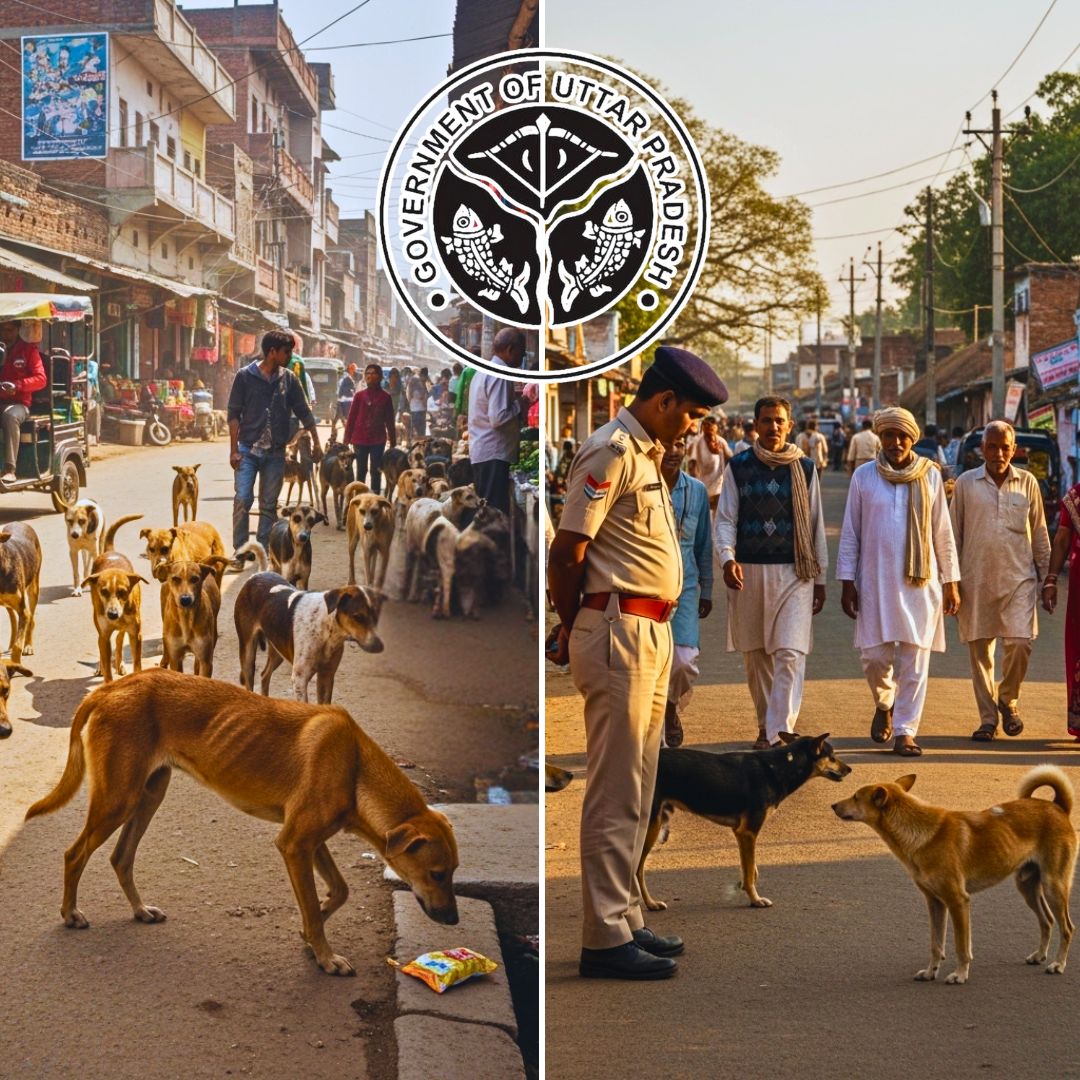The Uttar Pradesh government has launched stringent new rules to manage aggressive stray dogs in response to escalating bite incidents across the state. Under the policy issued on 10 September 2025, dogs that bite humans without provocation will be confined in animal centres for 10 days for observation, sterilisation, and microchipping before being released back to their locality.
Repeat offenders face ‘life imprisonment’- permanent confinement-unless adopted under strict legal conditions. A committee evaluates whether the incidents were provoked to ensure fair treatment. Officials stress community cooperation and humane enforcement as key for success amid rising public safety concerns and animal welfare obligations.
Rising Numbers Prompt Action
The rising frequency and severity of dog bite cases in Uttar Pradesh have alarmed authorities and citizens alike. In 2024 alone, districts such as Meerut reported over 60,000 bite incidents, with vulnerable groups such as children constituting over 30 percent of victims in some areas.
The state witnesses an estimated daily average of 10,000 new victims needing medical care for dog bites, often requiring anti-rabies treatment. This public health risk has led to urgent policy measures aiming to balance safety with compassion.
Dr Vijay Amritraj, Veterinary and Animal Welfare Officer in Prayagraj, explained the procedure: “Dogs that bite unprovoked are taken to an animal centre for observation and behavioural evaluation. A three-member committee including a veterinary doctor, animal behaviour expert, and municipal official investigates each case to determine provocation.
If provocation is confirmed or behavioural stress is detected, training and rehabilitation are provided. However, repeat offenders will face confinement for life, unless adopted with legal guarantees to prevent further abandonment”.
Humane Yet Strict Measures
The government’s approach aligns with the Supreme Court’s directives to ensure humane treatment under the Animal Birth Control (ABC) Rules, 2023, and the Prevention of Cruelty to Animals Act, 1960. It mandates designated feeding zones for stray dogs, established away from playgrounds, schools, and senior citizen areas to reduce risk. Feeding times are fixed during low pedestrian traffic hours, with local committees resolving conflicts between caregivers and residents. Misbehaviours against animal welfare staff enforcing these guidelines incur strict penalties.
Dogs not deemed aggressive are sterilised, vaccinated against rabies, and microchipped for tracking before release to their original areas. The microchips contain details on sterilisation and behaviour to prevent repeat incidents. Permanent enclosures will isolate aggressive or rabid animals. Adoption requires submission of affidavits pledging lifelong care and non-abandonment, emphasizing community responsibility while limiting euthanasia and relocation, which are largely prohibited.
The Logical Indian’s Perspective
Uttar Pradesh’s new stray dog management guidelines aim to strike a delicate balance-protecting public health and safety without compromising kindness, empathy, and animal welfare principles. The strategy embraces humane science-based interventions along with community cooperation, signalling a thoughtful approach to a complex urban challenge with socio-cultural dimensions.
Humane enforcement, education, and inclusive dialogue must continue alongside strict policies for long-term success. Compassionate coexistence between humans and animals demands collective responsibility and empathy, values this policy seeks to uphold.










